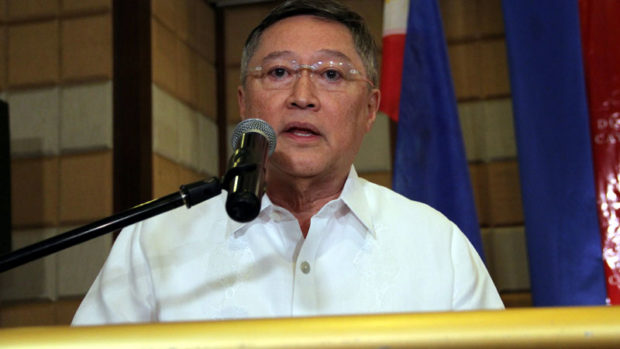The government has decided to defer the privatization of United Coconut Planters Bank (UCPB) as it looks for ways to recover its earlier capital and deposit investments in the state-run lender, according to the head of the Duterte administration’s economic team.
Finance Secretary Carlos G. Dominguez III told reporters that the government was still evaluating how it could dispose of its stake in UCPB.
“You see the situation in UCPB. The government has supported it for so many years. In fact, we still have P42 billion with them. So the question is, how is it best for us to recover the P42 billion plus all the cost of money of that P42 billion all these years? Is it through privatization or another means?” Dominguez explained, adding that government investments in the bank could have reached about P100 billion.
In a text message Monday, PDIC president Roberto B. Tan said the government provided to UPCB capital and income support as well as regulatory relief under the financial assistance package it extended in 2008.
“The original financial assistance package was amended in 2008. The loan assistance of P20 billion was converted to P12 billion in capital notes and P8 billion in purchase-of-assets without buyback,” Tan said.
According to Tan, the capital loans could be bought back once there is a buyer, while the assets that could not be bought back were already almost settled with PDIC.
On top of the P20-billion PDIC assistance was P30 billion in income support through deposits from the Bureau of the Treasury, Tan said.
The government ended its support for UCPB in 2017.
Dominguez said there were many other alternatives other than privatization, but he did not elaborate.
The finance chief said he already tasked the state-run Philippine Deposit Insurance Corp. (PDIC) to calculate how much the government had spent to sustain UCPB’s operations.
“We haven’t come up with the final amount, but it’s large. So you look at that—if you sell it, essentially you are telling the Filipino public ‘well sorry, you lost the difference.’ As chief financial officer of the country, I’d like to get back everything that we have there—that’s the goal. Now, how do we do it? Is it through privatization or other means? I’m pretty sure that privatizing it is not going to do it,” Dominguez said.
In 2015, the Privatization and Management Office (PMO) temporarily suspended the planned sale of the government’s controlling stake in UCPB through a privatization scheme that would have required the winning bidder to not only acquire the government equity but also infuse fresh capital into the bank.
The Department of Finance-attached agency that disposes of public assets had required recapitalizing UCPB by at least P15 billion through subscription to up to 37.2 billion primary common shares as well as called for the outright purchase of at least 1.11 billion common shares held by the government or 73.9 percent of the bank.
The floor price had been set at P1 a share, hence entailing a total investment of at least P16.1 billion.
The PMO had received 12 letters of intent from local and foreign banks as well as private equity firms looking to buy UCPB.


